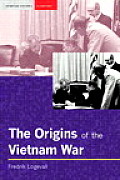by Author Cheong Soo Pieng
About the Author
Cheong Soo Pieng was a pioneer artist who created visually fresh pictures of Southeast Asia’s landscapes and people. By marrying the artistic traditions of the East and the West, Soo Pieng broke new ground in the way the tropics were portrayed.
Common Southeast Asian subjects — a fisherman’s kelong, two sarong-clad women on the way to the market, a group of people busy drying fish, the graceful figure of a Balinese dancer — take on new stylised forms through Soo Pieng’s deft use of pictorial devices and techniques from different cultures and traditions such as Chinese ink painting, Western oil painting, Cubism, geometric abstraction and wayang kulit.
About the book
This book is the first of its kind on Soo Pieng. The 94 colour plates present the reader with the breadth and complexity of this Nanyang artist’s extensive oeuvre. The chapters include a wealth of personal photographs as well as the latest research on the artist. Pictures of recently unearthed drawings, sketches, watercolours and woodcut prints shed further light on Soo Pieng’s personal philosophy and artistic ambitions.
Cheong Soo Pieng was a pioneer artist who created visually fresh pictures of Southeast Asia’s landscapes and people. By marrying the artistic traditions of the East and the West, Soo Pieng broke new ground in the way the tropics were portrayed.
Common Southeast Asian subjects — a fisherman’s kelong, two sarong-clad women on the way to the market, a group of people busy drying fish, the graceful figure of a Balinese dancer — take on new stylised forms through Soo Pieng’s deft use of pictorial devices and techniques from different cultures and traditions such as Chinese ink painting, Western oil painting, Cubism, geometric abstraction and wayang kulit.
About the book
This book is the first of its kind on Soo Pieng. The 94 colour plates present the reader with the breadth and complexity of this Nanyang artist’s extensive oeuvre. The chapters include a wealth of personal photographs as well as the latest research on the artist. Pictures of recently unearthed drawings, sketches, watercolours and woodcut prints shed further light on Soo Pieng’s personal philosophy and artistic ambitions.
About YourVietbooks.com
YourVietBooks is a collection of books on Vietnam for Readers who are interested in Vietnam's History, Culture, Language, Economy, or Business. Most titles are in English, but some are only available in French or Vietnamese. We can provide interested parties an accurate translation of some parts of the books for your research purposes. Translations are done by YourVietnamExpert's qualified and experienced translators. contact@yourvietnamexpert.com



